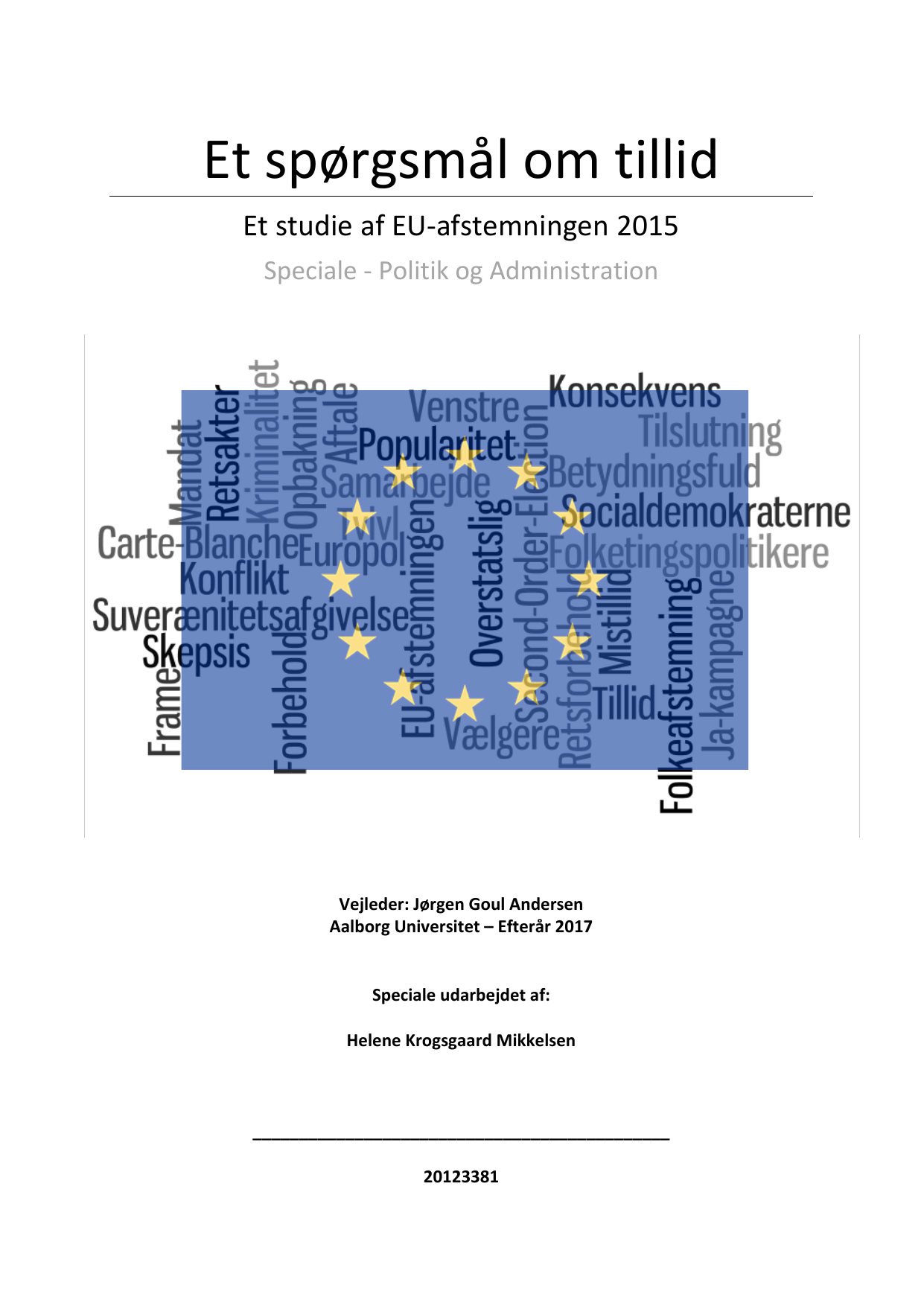
Et spørgsmål om tillid - Et studie af EU-afstemningen 2015
Oversat titel
A question of trust - A study of the EU-referendum 2015
Forfatter
Semester
4. semester
Uddannelse
Udgivelsesår
2017
Afleveret
2017-10-02
Antal sider
74
Abstract
On December 3, 2015, Denmark held a referendum about further integration in the European Union. The referendum was held to modify the so-called National Compromise, designed in response to the 1992-referendum, where the Danish voted “no” to ratifying the Maastricht Treaty. The National Compromise became part of the Edinburgh Agreement between Denmark and the European Council. This agreement gave Danes four opt-outs from the Maastricht Treaty, including Justice and Home Affairs, which is the main subject of this thesis. With this agreement, Danish voters in a 1993 referendum ratified the Maastricht Treaty. The movement of Europol from the intergovernmental level towards the supranational level, thus subjecting Danish participation to the Edinburgh opt-outs, necessitated the 2015 referendum. Including in the referendum were 22 legal acts. The result of the referendum was 53,1 pct. in favor of retaining the present JHA opt-out clause. This master thesis examines whether distrust towards politicians was a major contributing factor to this result. For this purpose, I created a two-fold analysis in which I stated five hypotheses to test the findings. The first analysis examines the referendum campaign from three of the largest political parties in Denmark, The Social Democrats, Danish People’s Party and Danish Liberal Party. The Social Democrats and Danish Liberal Party collaborated on the yes-campaign and Danish People’s Party was one of the parties from the no-campaign. The first analysis examines campaigns of the three parties, and whether this information supporting an attitude of greater distrust towards the politicians. The Yes-parties based their campaign on a frame of the importance of future collaboration with Europol. However, none of the no-parties thought that this collaboration was a bad idea. The analysis finds that the Yes-campaign were too vague, didn’t at all inform at appropriate levels, didn’t include the fact that the referendum was a part of EU and didn’t mention the biggest consequence of the referendum - the fact that a simple majority at the Parliamentary Committee of Europe would have the power to choose which legal acts Denmark should join in the future, if the referendum result was in favor of restructuring the present opt-out clause. Even though the Yes-campaign based their campaign on the importance on the future collaboration with Europol, the No-campaign succeeded at creating a campaign that challenged the vague Yes-campaign. The first analysis concludes that the fatal construction of the Yes-campaign took part in mobilizing voters distrust for the politicians. The second analysis examines a survey study of voter attitudes, especially attitudes towards politicians, EU and further collaboration on politics not featured in the referendum. The goal was to examine if these voter attitudes concludes that political distrust was a factor for the referendum. Several findings in the analyses indicate that political distrust was a factor, but nonetheless the findings do not firmly demonstrate, that political distrust was the reason for the referendum outcome.
